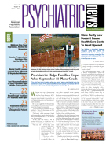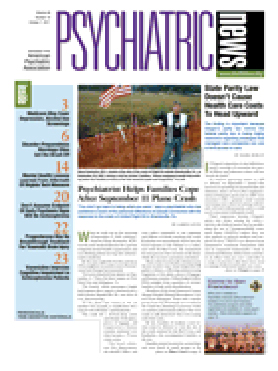Having strong religious or spiritual beliefs may reduce the likelihood of experiencing a recurrence of depression, finds a new study published online August 24 in AJP in Advance.
The 10-year prospective study focused on the offspring of participants in an earlier decade-long study that found a link between religiosity/spirituality and a reduced risk of major depression in those with and without a history of the disorder.
"This well-designed study provides more striking results than previous research investigating the role that religion and spirituality can play in limiting depression," said John Peteet, M.D., an associate professor of psychiatry at Harvard Medical School and fellowship site director at the Dana-Farber Cancer Institute's Adult Psychosocial Oncology Program, who was not involved in the study. "Hopefully, it will make some psychiatrists more aware of and open to exploring spiritual resources in meeting the needs of their patients."
Lisa Miller, Ph.D., an associate professor of psychology and education at Columbia University Teachers College, led a team of researchers in assessing the influence of a strong connection to religion or spirituality on the mental health of 114 adult children of both depressed and nondepressed parents. The parents participating in the initial study were all white, working- or middle-class adults living in the northeast United States.
For the new study, doctoral- and master's-level professionals evaluated the mental health of the participants at the beginning and end of the research period, with no foreknowledge of their family's history of depression or religious beliefs.
Participants' religiosity was determined through the self-assessment of three measures: the importance of religion or spirituality in their lives, their frequency of attendance at religious services, and their current religious denomination. (The data used for analysis from both the initial study and the follow-up were limited to those of individuals identifying as either Catholic or Protestant because of the low number who identified as other religions.)
Miller and her team found that individuals reporting that they attached a high personal importance to religion or spirituality had approximately one-fourth the risk of other participants of experiencing major depression. Neither frequent attendance at religious services nor any particular denomination appeared to factor into participants' likelihood of suffering from a major depressive episode.
The researchers also found that those with a strong connection to their faith who were identified as being at high risk for depression due to having a depressed parent were one-tenth as likely as other participants to experience major depression. However, they noted that self-reported religiosity/spirituality appeared to protect only high-risk individuals in significant numbers from the recurrence of depression, rather than from onset of the disorder.
The researchers concluded that spirituality may prove helpful for some patients when incorporated into psychotherapeutic approaches to treating depression, and they suggested that future research could use brain imaging to examine the potential biological underpinnings of this study's findings. They also acknowledged that the participation of a more ethnically diverse population might yield different results.
This study was supported by the John Templeton Foundation. The data collection was funded by an NIMH grant, which includes a supplement from NIDA.

